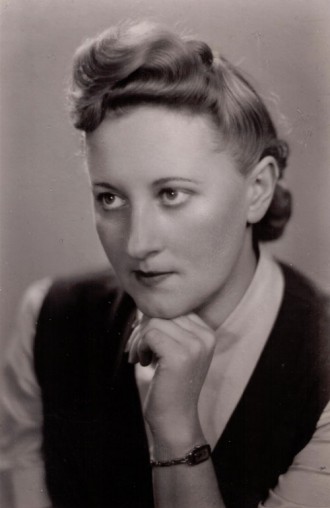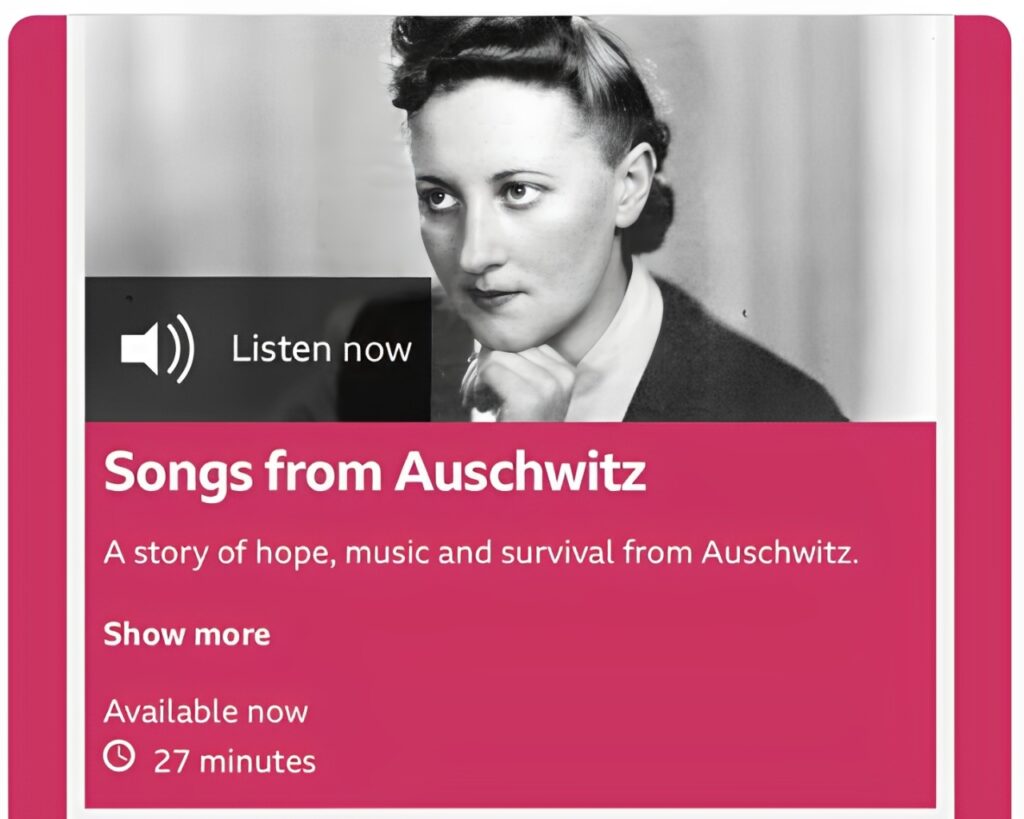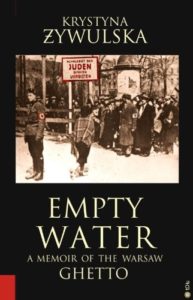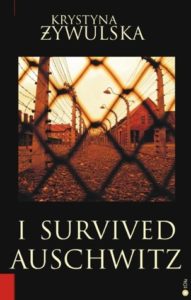
On these pages, you can read the message left by Krystyna Żywulska (Sonia Landau) - a woman who survived the Warsaw Ghetto and Auschwitz-Birkenau, to live and to bear witness to the inhumane times of the Second World War and leave a Holocaust Report. This website has several language versions, which differ in the content. Use the menu above to change the language versions.
Krystyna Żywulska was born in Łódź in 1914 as Sonia Landau. She studied law at the University of Warsaw and was interrupted by the outbreak of World War II. In 1941, she and her family were resettled to the Warsaw Ghetto. After two years she and her mother managed to escape (in dramatic circumstances she had to leave her father in the ghetto). Then she became involved in the activity of the Polish resistance movement under the assumed name of Zofia Wiśniewska, working in a group producing false documents. In 1943 she was arrested by the Gestapo. Interrogated in the Szucha Avenue, she claimed her name was Krystyna Żywulska. She was imprisoned in the Pawiak prison and then, as a political prisoner, she was sent to Auschwitz. She was one of the seven survivors of the 800-person transport from Pawiak to the camp. She worked in a women’s unit registering new prisoners (the so-called Canada). In the camp, Krystyna Żywulska wrote poems (they could not be written down), which became very important for her fellow prisoners. They were learning them by heart and passed them on. The most famous became the March through the gate, which was to be sung on the day of the camp’s liberation. The titles of others are Apel, Dance, Girl, Unsent letter, Excursion into the Unknown, Parade, Previously birches grew here, which were also secretly passed on to other prisoners and remembered. Most of these poems were lost, and only eight survived, four of which Żywulska included in her book I survived Auschwitz. Because of these uplifting poems, a co-prisoner saved Żywulska’s life when she was suffering from typhus, and she was also able to move her to a lighter job in the Effektenkammer commando, segregating the things taken from the new prisoners. She did this work in Birkenau, in the immediate vicinity of the gas chambers. The so-called “Effektenkammer Link” comes from this period.
On January 18, 1945, during the death march, evacuation of the concentration camp from Oświęcim to Wodzisław Śląski, Żywulska managed to escape on the border between Brzeszcze and Jawiszowice, after which she hid with the local residents. Since then, she has been celebrating her birthday every year on January 18. The name Żywulska (the Polish word “żywa” means “living”) she adopted expresses her great will to live.
Immediately, while the memories were still hot, she began to write down her experiences from the death camp, which were published as early as 1946 as the first book in the world containing an account of Auschwitz Birkenau. Over time, “Przeżyłam Oświęcim” (I survived Auschwitz) was also published in English, French (J’ai survécu à Auschwitz), German (Ich überlebte Auschwitz), Russian (Я пережила Освенцим), and Czech (Přežila jsem Osvětim).
After returning to Warsaw, she married a childhood friend, Leon Andrzejewski (1910-1978), an officer of the security apparatus of the People’s Republic of Poland. She joined the Polish United Workers’ Party (PZPR) and was a member of the Executive Committee of the Polish United Workers’ Party (POP PZPR) attached to the Main Board of the Polish Writers’ Union in 1950. In these conditions, Żywulska regained her sense of security, at the same time feeling that after what she had been through, she simply deserved a better and safer life. Only years later did she realize that this was not the right approach.
And for now, she enjoyed life and shared the joy of life. She wrote satires, columns, suckers, epigrams, and limericks. Her cabaret monologues and songs were performed on the radio and in films, as well as printed in the press. In 1968 Polish top singer Sława Przybylska performed her song Żyje się raz (You only live once). Author of lyrics for cabarets Wagabund and U Lopka and songs, the most popular of which are: As long as life lasts, I’m so in love, Dance with me, dance to the film “Kochajmy syrenki”/”Let’s love mermaids” 1966, You and me, and the night to the film “Kulig” / “The Sleigh” of 1968.
In the late 1950s she met Thomas Harlan in Warsaw, whose father, Veit Harlan, directed propaganda films under National Socialism. Thomas Harlan tracked down the Nazi crimes of people who were now important figures in the Federal Republic of Germany. She helped him with research which publication was undesirable in the Federal Republic of Germany, but which ultimately contributed to the launch of German trials of several former Nazis in the 1960s. When Harlan and Żywulska began to discover similar careers as former Nazis in the German Democratic Republic, the principals of the book in which their research was to be published stopped the project. The Relationship of Harlan and Żywulska – the son of a Nazi and a Jewish woman, Auschwitz prisoner – was described in 1998 by Liane Dirks in her book Krystyna.
Żywulska wrote her second book, Pusta woda (Empty Water) about the experiences of the Warsaw Ghetto in 1963, which with time was also published in English, French (L’eau vide), German (Leeres Wasser), Japanese (空の水). When writing about Poles, Jews and Germans, she avoided simplifications and considered each case individually.
When an anti-Semitic campaign developed in Poland after March 1968, Żywulska, who only in the Empty Water revealed her Jewish origin, was ostracised and her two sons were forced to leave the country. Following them, she went first to Munich and then to Düsseldorf, where she settled permanently. There she translated both her autobiographical books into German. At the end of her life she started to paint pictures. She died of leukemia in 1992. She is buried in Düsseldorf.
In 1991 Maria Nurowska, on the basis of her earlier conversations with Krystyna Żywulska, took up one of the themes of her biography from her time in a concentration camp, in the book Listy miłości (Love Letters).
In 1998, in her book Krystyna, Liane Dirks used the entries from Żywulska’s diary and notes from her conversations with her. According to Andrzej Szczypiorski, this half-documentary and half-literary stylization only partly allow us to get closer to the truth about Żywulska.
In 2012, Jake Heggie composed a short opera, Another Sunrise, dramatic 30-minute scene for soprano and chamber ensemble based on the life and work of Żywulska.
In 2016, the NITI Theatre in St. Petersburg produced a musical performance based on Krystyna Żywulska’s book I Survived Auschwitz. It is a story of six girls whose lives were connected by the death camp, telling about courage, struggle, love and faith. It is a story of a woman whose unshakeable will and desire for life helped her to survive and overcome what might seem impossible to prevail.
In 2016, Jake Heggie created the full-length opera Out of Darkness: two remain, based on Another Sunrise, which was showered with awards and has been featured in operas in San Francisco, Seattle, Chicago, Atlanta, Toronto, Baltimore and Amsterdam, among others.
Since 2018, a feature film project based on the book Empty Water has been developed.




Recent Comments